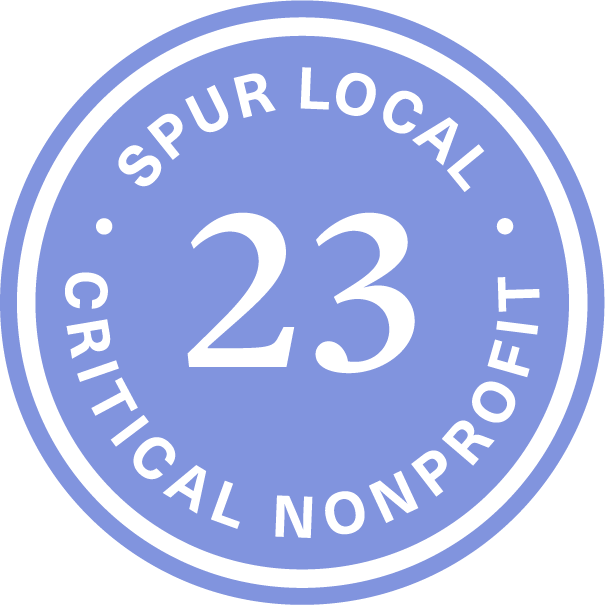Note: This is the second post in DASH’s ongoing What It Takes blog series, which examines and explains the various factors that make getting safe from abuse so difficult. Each post explores factors that survivors have to navigate on their journey to finding safety. Learn more about the campaign at the What It Takes page, and please spread the word: WhatItTakesDC.
—
Leaving an abusive relationship is harder than you may think. People often ask: “Why didn’t she call the police?”
It’s a very logical question. After all, most of us were taught to call the police in violent situations. It would seem obvious that physical acts of domestic violence certainly merit telling the police. We picture restraining orders. A kindly police officer telling a victim: “You’re safe now. He’s not going to be able to hurt you or your children again.” Problem solved… right?
Calling the cops isn’t always safe for domestic violence victims:
If only things were so easy. In fact, domestic violence is rarely reported to the police. It’s estimated that over 70% of domestic violence cases go unreported. So why aren’t victims seeking help from the people in society we trust and expect to protect us?
The reasons are varied and complex, but some common issues that stop survivors from calling the police include:
– Shame and stigma: Many survivors feel crippling shame and stigma admitting to friends and family that they are in an abusive relationship, as well as to authorities like the police. This is due in part because domestic violence victims are so often blamed for the abuse they endure.
– Fear of getting arrested themselves: Survivors who call the police looking for help are often arrested if the officer cannot identify the aggressor in the dispute. Almost 2% of domestic violence calls end in a dual arrest.
– Past criminal record: Calling the police may cause greater harm if the survivor has a past criminal history or if children are present during the violent incident.
But that’s not even the worst of it. One of the most harrowing potential outcomes for women abused by their partners involves remarkably unjust state laws that lock up mothers whose children were harmed—even murdered—by their partner. A new investigative report by Buzzfeed identified 28 mothers in 11 states sentenced to at least 10 years in prison for failing to prevent their partners from harming their children. In these cases, the mothers were charged with permitting child abuse, although they themselves were victims of chronic physical abuse, living their lives in fear of their partner. As a result, these women were imprisoned for their partner’s actions and their surviving children are deprived of their mother. As the article quotes: “It’s the ultimate case of blaming the victim.”
The report points out the key misconception that these cases are premised upon, and which DASH’s #WhatItTakesDC campaign is helping to overcome.
“Many judges and juries — still don’t grasp the answer to a question at the core of so many of these cases: ‘Why didn’t she leave him?’”
“Why don’t women leave abusive relationships?”
As DASH has explored in previous blogs, there are many reasons that survivors don’t leave abusive relationships. But the main reason in many of these cases was fear. As the article states, these women feared that by trying to leave they would provoke their partners to more extreme violence. Many feared for their own lives, as well as their children’s.
“I done tried to leave plenty of times,” Arlena, one of the article’s profiled survivors, testified, but he “actually called and threatened to kill my family.” The last time Arlena tried to escape, her partner came to her father’s house (where she was staying), grabbed her, threw her into his car trunk, and slammed it shut. She thought he was going to kill her. He didn’t, but Lindley moved back in with her abusive partner, saying that she “didn’t want to bring trouble into her father’s house.”
Arlena’s partner continued to assault her and her three-year-old son, eventually killing him. For this, Arlena was sentenced to 45 years in prison for failing to protect her son from her partner.
While in many states, a lot of the laws that are used to prosecute these women were originally intended to help curb child abuse, few of them recognize the complex dynamics of violent abuse involved in these cases.
Blaming women for their partner’s abuse of their children is also tied to American society’s broader notions of motherhood as sacrifice. The article explains that “lopsided application of these laws reflects deeply ingrained social norms that women should sacrifice themselves for their children.” In comparison to the 73 cases of women being sentenced to 10 years or more for their partner’s abuse of their children, Buzzfeed found only 4 comparable cases for men.
Defending domestic violence survivors from failure-to-protect laws
As abysmal as the situation is, there is reason for hope of reduced sentencing for these domestic violence survivors, as well as legal changes that protect those being abused from prosecution. When Minnesota and Iowa created similar child protection laws in the mid-1980s, “they added specific defenses for parents who reasonably feared they would be harmed if they stepped in to stop child abuse.”
The article also tells the story of a judge who had a change of heart upon realizing the gravity of abuse that a battered woman endured. The woman had been previously sentenced to 35 years in jail for failing to protect her daughter, who was killed by her husband. When the judge realized the gravity of this woman’s abuse, he imposed a strict probation plan and suspended the rest of her sentence.
DASH is leading the campaign for policies supporting domestic violence survivors in DC:
In the DC metro area, a domestic violence call is made to the Metro Police Department every 16 minutes. But for every domestic violence-related police call made, it is estimated that 70% of incidents remain unreported.
Since 2006, DASH has doubled the amount of safe beds for survivors of domestic violence while also working to safety plan with survivors who choose to stay.
Take Action:
You can learn more about what it takes for survivors to get safe at WhatItTakes.org or register to attend our upcoming fundraiser, Allies in Change.




